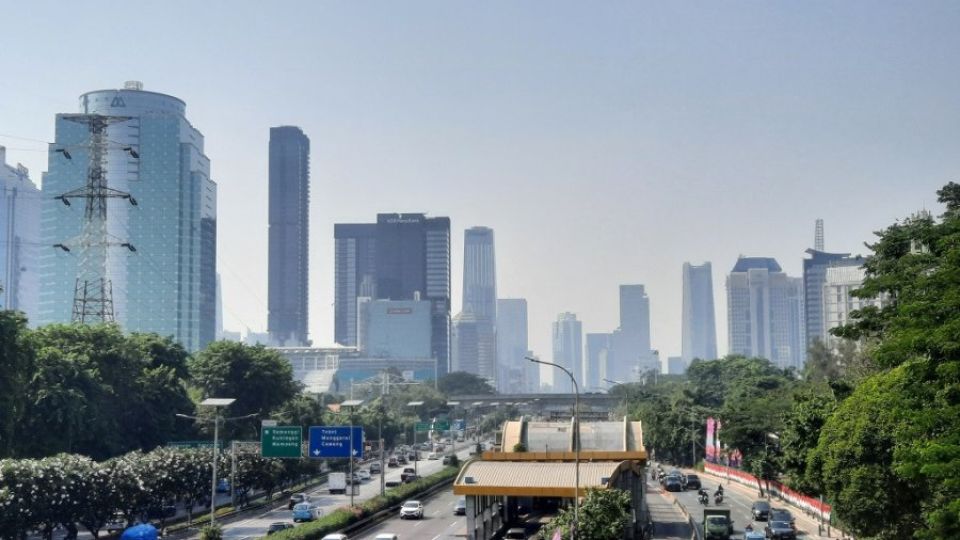March 14, 2024
JAKARTA – The government has called on lawmakers to allow Jakartans to elect their own governor once the city loses its national capital status as the House of Representatives kickstarted the deliberation of the Jakarta special designation bill on Wednesday.
The House has been seeking to speed up deliberations on the bill before President Joko “Jokowi” Widodo’s administration begins moving the national capital from Jakarta to the Nusantara Capital City (IKN) in East Kalimantan in August.
The bill, first drafted by lawmakers of House Commission II overseeing home affairs, seeks to redefine Jakarta’s standing as an autonomous province within an expansive agglomeration urban region that serves as the country’s economic center.
The House Legislation Body (Baleg) held a meeting with the government and the Regional Representatives Council (DPD) on Wednesday that formally kicked off deliberations on the bill which is expected be brought to a House vote in an upcoming plenary session during the current sitting period.
In the lead-up to Wednesday’s meeting, observers had taken issue with a provision in the bill that gives the president the sole authority to appoint and dismiss Jakarta governors, thereby foregoing direct elections entirely.
Home Minister Tito Karnavian told the meeting that the government has been firm in its stance on sticking with regional elections, as he asked lawmakers to revise the provision so Jakarta would still be led by an elected governor.
“The government’s stance is clear, [we are] firm in our position that [Jakarta’s governor] should be elected, not appointed,” he said during the meeting, greeted by applause from those in attendance.
Echoing Tito, DPD member Sylviana Murni said that giving the president the right to appoint Jakarta’s governor would go against the country’s principle of holding direct elections.
“The DPD agrees and has the same opinion [with the government] that a governor should be elected,” she said.
While eight of the nine political parties in the House initially endorsed in December the bill that contained the provision allowing for the President to appoint a governor, these parties have since changed their tone following public complaints of democratic backsliding.
VP role
Another proposed provision that has caught the public’s attention gives a mandate for the vice president to chair a new agglomeration regional council, which will coordinate and oversee how regional administrations in the Jakarta agglomeration area implement urban development programs.
This includes administrations of Bogor regency and city, Bekasi regency and city, Depok and Cianjur regencies in West Java and Tangerang city and regency and South Tangerang in Banten.
Critics have said the provision was designed as part of Jokowi’s attempt to cling to power through his son, presumptive vice president-elect Gibran Rakabuming Raka.
Despite critics, Home Minister Tito stood by the provision, saying that the Jakarta agglomeration regional council would mirror one already established for Papua, currently chaired by outgoing Vice President Ma’ruf Amin.
“The problems [faced by Jakarta] cannot just be handled by a single minister or even a coordinating minister,” Tito said during the meeting.
“There’s only two entities that can do it, the president or the vice president. But, because the president’s scope of responsibility is mainly on a national scale, [the agglomeration council] is better handled by the vice president.”
Crunch time
With the government and DPD having handed in documents explaining their positions on issues regulated in the bill on Wednesday, Baleg chair Supratman Andi Agtas said lawmakers would continue the deliberation, with a tentative deadline of Apr. 5 for putting the bill before the House in a plenary session.
Supratman said that Baleg is hopeful that the bill can be passed into law during the current sitting period, particularly since lawmakers have already missed the Feb. 15 deadline of putting Jakarta’s new status into law, as mandated by the 2022 IKN Law.
He expected the deliberations to be centered on the provisions on the Jakarta governor and the agglomeration council.
“I personally can’t speak on behalf of Baleg, as each political party in the House has [the right] to decide [their own stance regarding the two provisions]. If everybody can agree, that’s great. But if not, there’s no other way but to debate it,” he said.


